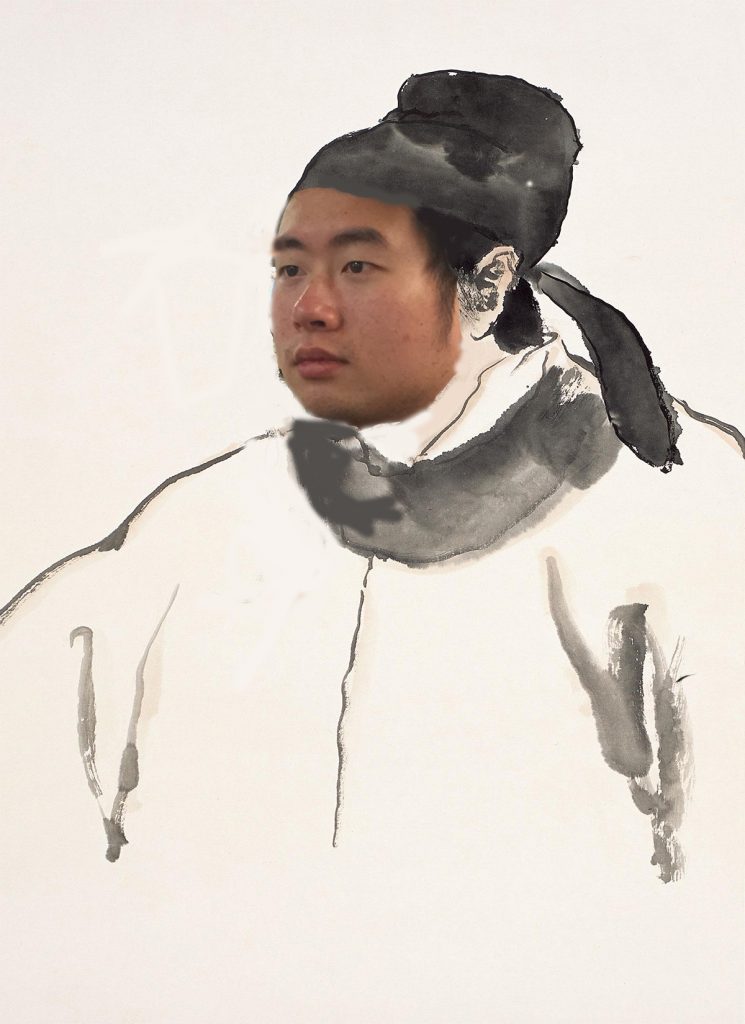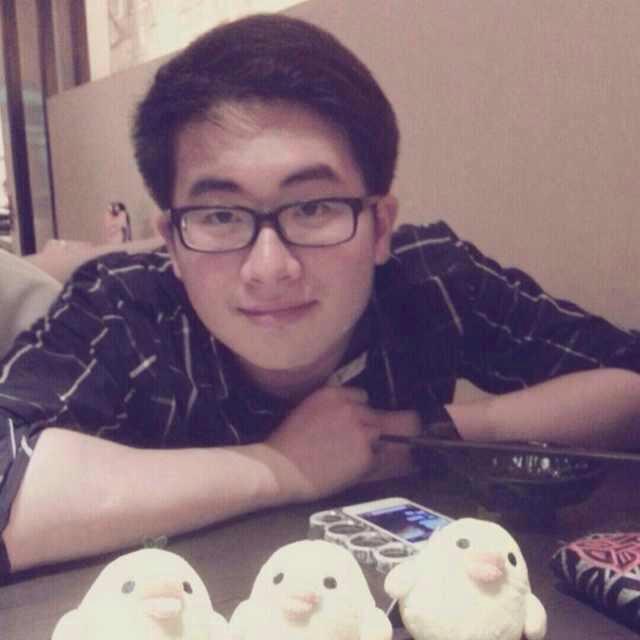To study the history of China, one cannot exclude the history of the Tang dynasty, which was probably the strongest and the most prosperous period of China. And throughout the history of the Tang dynasty, the life of Empress Wu (624-705), her rose and fall could be one of the most extraordinary and colorful stories. Our character, Hao Wang, experienced the time when Empress Wu took the power in her hands step by step, and died of Empress Wu’s strengthening power action.
Hao Wang was born in 624 in a village located in the south part of China at that time. Hao Wang was the only child of a family which was consisted of commoners, a social status defined by the compilers of the Tang Code.1 His father was a peasant, but since the government entrance examination was revolutionized and praised since the Sui dynasty, the whole household supported Hao Wang to be educated at local school. The teacher at that local school not only taught Hao Wang about the knowledge he needed to pass the examination, but also shaped him into a scholar that was eager to serve the emperor as one of the advisers. After hearing about the fact that Taizong (598-649) created an environment that all major issues were debated among a large group of high ministers meeting in the emperor’s presence, that the best of them did not fear to speak out in opposition to the emperor’s wishes, Hao Wang was more determined to pass the examination, become one of the highest minister and have his fame spread all over the continent.2 In 644, Hao Wang took the examination. Hao Wang, following the progress of the examination, visited his examiner and gave him samples of his writing.3 Though Hao Wang devoted all his time in preparing himself for this examination, his dream shattered into pieces as he failed to pass the exam.
The Sui Dynasty and the Tang Dynasty did open a way for people to get into the bureaucracy, but by the time when Hao Wang took the exam, the numbers passing the examinations were small, and most of those who passed them were qualified for office by their aristocratic family backgrounds.4 Therefore, as one from a peasantry family with no family connections at all, Hao Wang couldn’t fulfill his goal. Also, Taizong’s interventions in Korea, abandonment of the restrained spending, and the fact that his great ministers were almost all members of great aristocratic families that had produced high officials for generations disappointed Hao Wang. Being upset and desperate, Hao Wang didn’t take any more exams and became a local teacher in his region.
After Taizong died in 649, Gaozong (628-683) succeeded him as the prince most favored by the senior high officials.5 And with him being crowned, Wu Zhao, who should spend the rest of one’s life in nunnery as Taizong’s concubine, was brought back to the palace. After strife openly and secretly, Wu Zhao successfully got rid of her main patron and her main rival, the emperor’s first wife in 655.6 The fall of Empress Wang and the rise of Empress Wu not only meant the end of the fight between two women, but also shadowed the pressing and intensive atmosphere in the bureaucracy during that period of time, since the struggle between the former senior high officials and the less highly placed officials had reached a higher peak.7 Since Empress Wu replaced Empress Wang, more and more of her opponents were sent into exile in distant southern provinces.8 The stories about Empress Wu were carried with these expatriates, and some of them were told to Hao Wang. Though it had been a mess in the palace, Hao Wang was too insusceptible to care about any of these. But after the outbreak of two critical events, Hao’s passion for entering the bureaucracy and becoming an adviser was lit up again.
The first thing was that Empress Wu, in order to reform the examination and recruit more men into the bureaucracy, reduced the influence of family connections on the examination process by concealing the names of paper-writers from the examiners.9 This was the main reason and the support for Hao Wang to rethink about getting into the bureaucracy and realizing his dream. Without the burden of lacking family connections, the knowledge Hao Wang learned and the experience he got over years of teaching were more than enough for him to pass the exam. The other event, or more likely a tragedy, had stronger effect on Hao’s change of mind, the death of Li Hong (652-675), who was the fifth son of Emperor Gaozong and the oldest son of Empress Wu and was made the crown prince in 656.10 It was settled that if someone had to hold the reins of government when the emperor was incapacitated by illness, if the heir apparent was a capable adult, ordering him to “administer the realm” would be a more fitting solution than leaving affairs in the hand of a woman. Li Hong, as the heir apparent, was thought to be intelligent and capable and had filled this role effectively.11 But since he opposed the empress frequently and that Empress Wu never let anyone threaten her power, Li Hong died suddenly and mysteriously in 675. Many at that time believed that Li Hong was poisoned by Empress Wu, who was trying to maintain her power. Hao Wang was one of them. Provoked by these two events and believing the power should be in the hands of the Tang family, Hao Wang was determined to take another exam in order to get into the bureaucracy and stand against Empress Wu. Now that he had an even stronger will, and that all the obstacles he met before had been cleared, Hao Wang successfully passed the examination and became a famous scholar in the bureaucracy for his good work on the exam, especially in poetry, which was a regular part of the advanced degree.12
After two years of working, Hao Wang was promoted for his profound knowledge and excellent performance as an adviser. Hao Wang was provided with a choice of what position he wanted to have since he was valued by his seniors, and he eventually chose to be the adviser of Li Xian (653-684), who was the sixth son of Emperor Gaozong, and the second son of Empress Wu.13 Li Xian was the new heir apparent after Li Hong, and was not as promising or widely admired as his late brother.14 But what Hao Wang heard was that Li Xian’s behavior was elegant even when in his youth, and he studied the Classic of History, Classic of Rites, Analects, and a number of ancient poems while the other princes were often engaged in cockfighting.15 Believing that someone who grew up like that would be a good ruler, Hao Wang chose to be at Li Xian’s side and through him, standing against Empress Wu. Hao Wang was accompanied with a lot of other able and independent-minded officials who had risen by passing examinations rather than by relying on aristocratic family connections. Together they became a substantial counter weight to Empress Wu’s power.16
Though Hao Wang and other officials did a great job in helping Li Xian make good decisions and oppose Empress Wu, they were still too vulnerable to sustain Empress Wu’s rage. Seeing Li Xian as great a threat to her power as his brother had been, Empress Wu accused him of plotting to rebel against his father and mother in 680, degrading him to commoner status, banished him to a distant province and later forced him to commit suicide.17 At the time when Li Xian got exiled, Hao Wang and other officials who were his advisers were all kept in prison. Many were killed, but Hao Wang was neither killed or released. He was just forgotten behind bars.
Gaozong died on December 27, 683.18 Without him, Empress Wu dealt with the two remaining heirs and finally, though not claiming to be the emperor yet, took over power. In 684, as Empress Wu’s Act of Grace, many prisoners were released from jail, including Hao Wang.19 By then Hao Wang had figured out that there was no way to question Empress Wu’s power inside the system. Therefore, as one scholar who was dying to give the power back to the Tangs, Hao Wang decided to join the group of scholars that seized the city of Yangzhou and rebelled. Started by a group of scholars, a substantial army was assembled, but without a good leader, the rebellion was soon crushed within two months by armies sent from the capital.20
Being lucky enough, Hao Wang again escaped from the fate of being executed. As an old man already, opposing Empress Wu was no longer in Hao Wang’s mind. Without the will of fighting, Hao Wang ran back to his hometown to be away from the capital, hoping he would not be found by anyone. Unfortunately, seeing the opposition to her growing power divided and incompetent, the empress now sensed that the way was clear for her to crush the remaining resistance. Therefore, she began offering generous rewards and appointments or promotions to anyone who would inform the authorities of anyone who spoke or plotted action against her power.21 Many saw this as the opportunity for improving their living and a guarantee of a place in the capital, including Hao Wang’s neighbor. Hao Wang’s neighbor, with no hesitation, reported him to the local official who was placed in position by Empress Wu as one of her own secret police.22 Both of them were brought to the capital. His neighbor was entertained at official expense and granted an interview with the empress while Hao Wang was thrown into the prison.23 After rounds of torture, Hao Wang lost hope and confessed of what he had done to stand against the empress. As a scholar who offended Empress Wu in many ways, Hao Wang was soon be sentenced to death.
Years after, when Li Xian was provided with an honorable burial by Emperor Zhongzong in 706, Hao Wang was praised with a lot of famous scholars as the advisers of Li Xian.24
Looking back at Hao Wang’s life, it seemed like he was merely one of the scholars that was desperately trying to opposing Empress Wu and eventually failed. Not only did they fail the movement they initiated, but they also ended their lives in a way that they had never expected, and yet they rewrote the history of Tang Dynasty. It was the existence of these scholars who dared to stand against Empress Wu that made it possible for her to be deposed and the Tang Dynasty was restored in 705.25
History is worth studying, not only because it is a record of what had happened in the past, but also because it is an evidence offering support for us to analyze the regulations of politics and human nature. Hao Wang was indeed downgraded when he was at the last step of his life, and yet his name was still remembered thousands of years later — with his lifelong rival — Empress Wu, and they together provided us with a microscope to explore the past of our world.
Notes
1 Hansen, Valerie. The Open Empire: A History of China to 1600. New York: Norton, 2000. Print. Page 180.
2 Wills, John E. Mountain of Fame: Portraits in Chinese History. Princeton, N.J.: Princeton UP, 1994. Print. Page 130.
3 Hansen, 187.
4 Wills, 129.
5 Wills, 131.
6 Hansen, 182.
7 Wills, 133.
8 Wills, 134.
9 Wills, 138.
10“Li Hong” Wikipedia, link: https://en.wikipedia.org/wiki/Li_Hong.
11 Wills, 137.
12 Hansen, 187.
13“Li Xian (prince)” Wikipedia, link: https://en.wikipedia.org/wiki/Li_Xian_(prince).
14 Wills, 137.
15 “Li Xian (prince)” Wikipedia, link: https://en.wikipedia.org/wiki/Li_Xian_(prince).
16 Wills, 137.
17 Wills, 137.
18 Wills, 138.
19 Wills, 139.
20 Wills, 140.
21 Wills, 140.
22 Hansen, 182.
23 Wills, 140.
24 “Li Xian (prince),” Wikipedia, link: https://en.wikipedia.org/wiki/Li_Xian_(prince) .
25 Hansen, 184.

